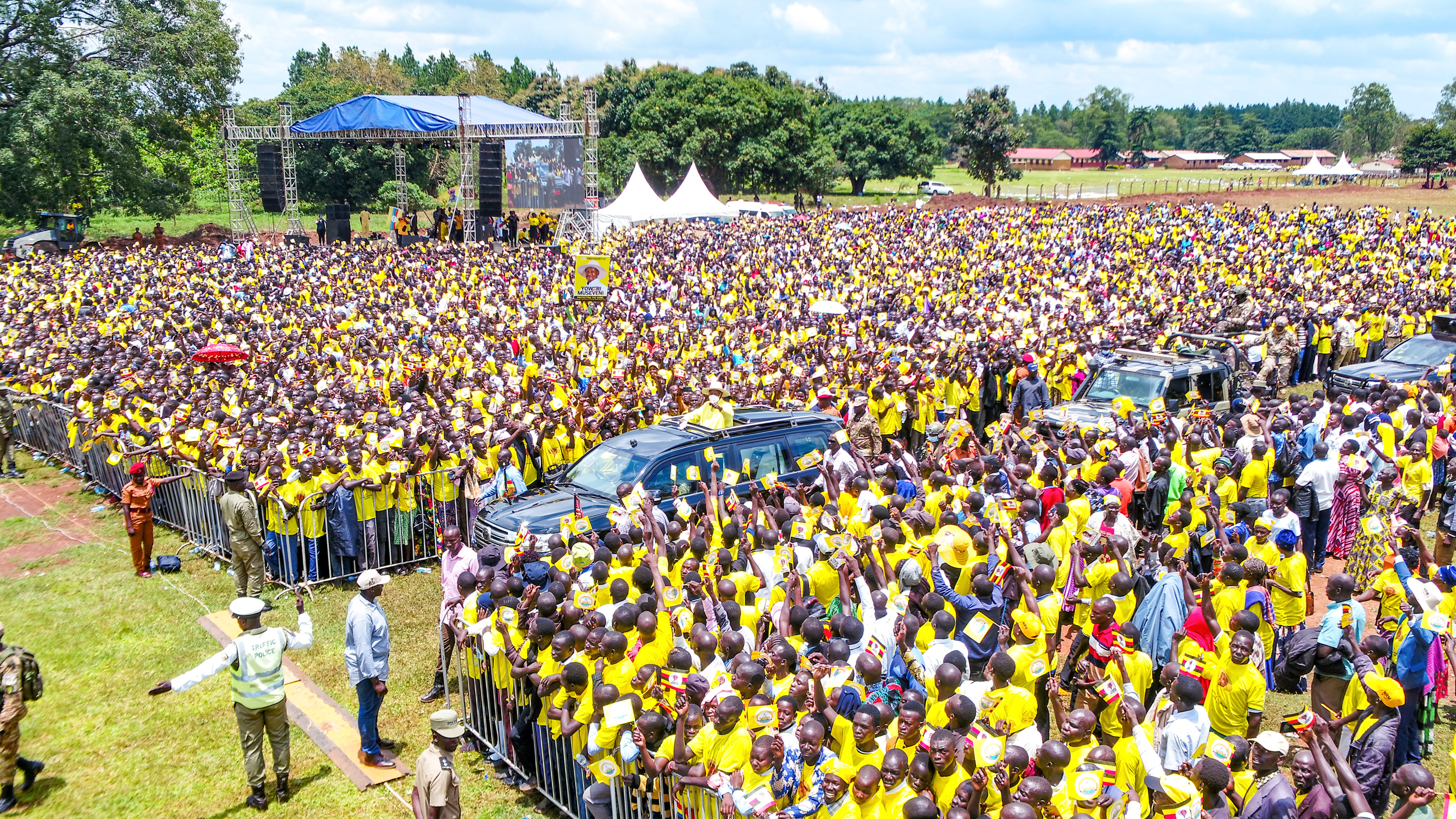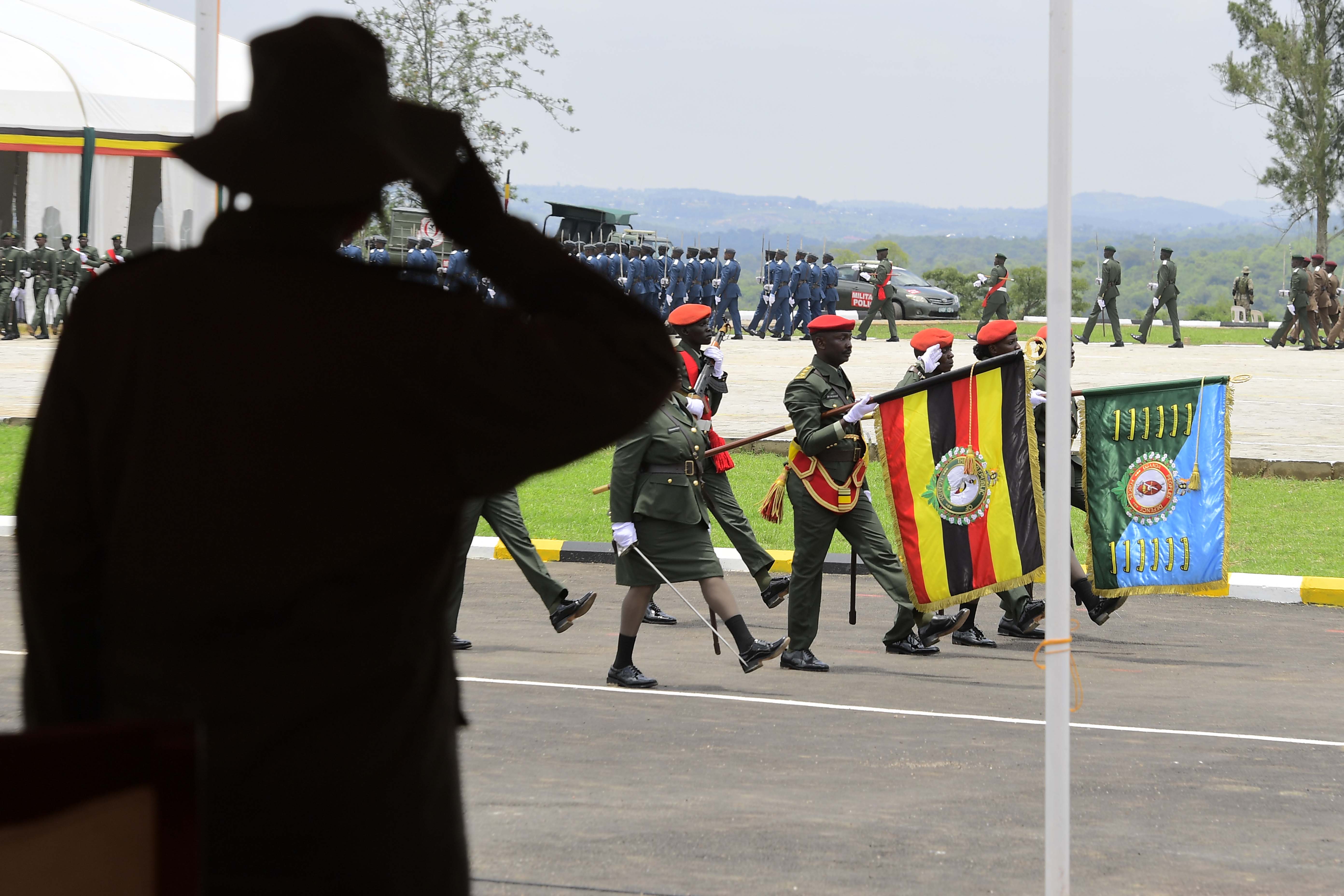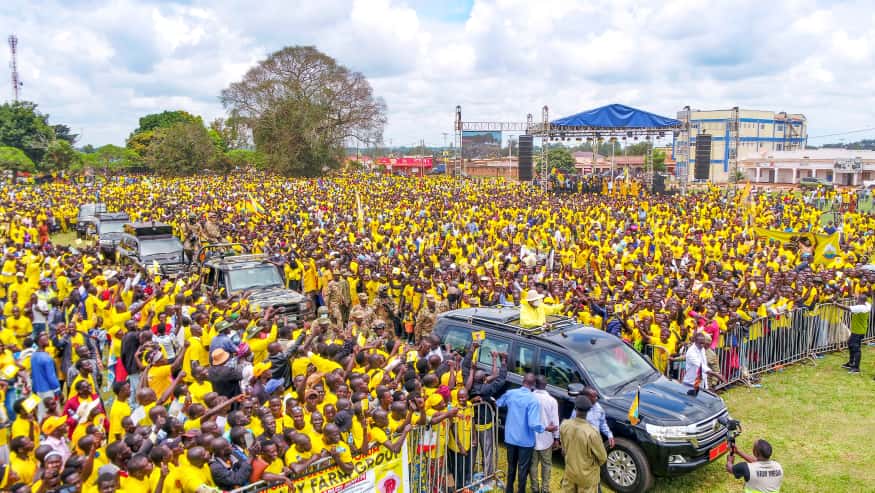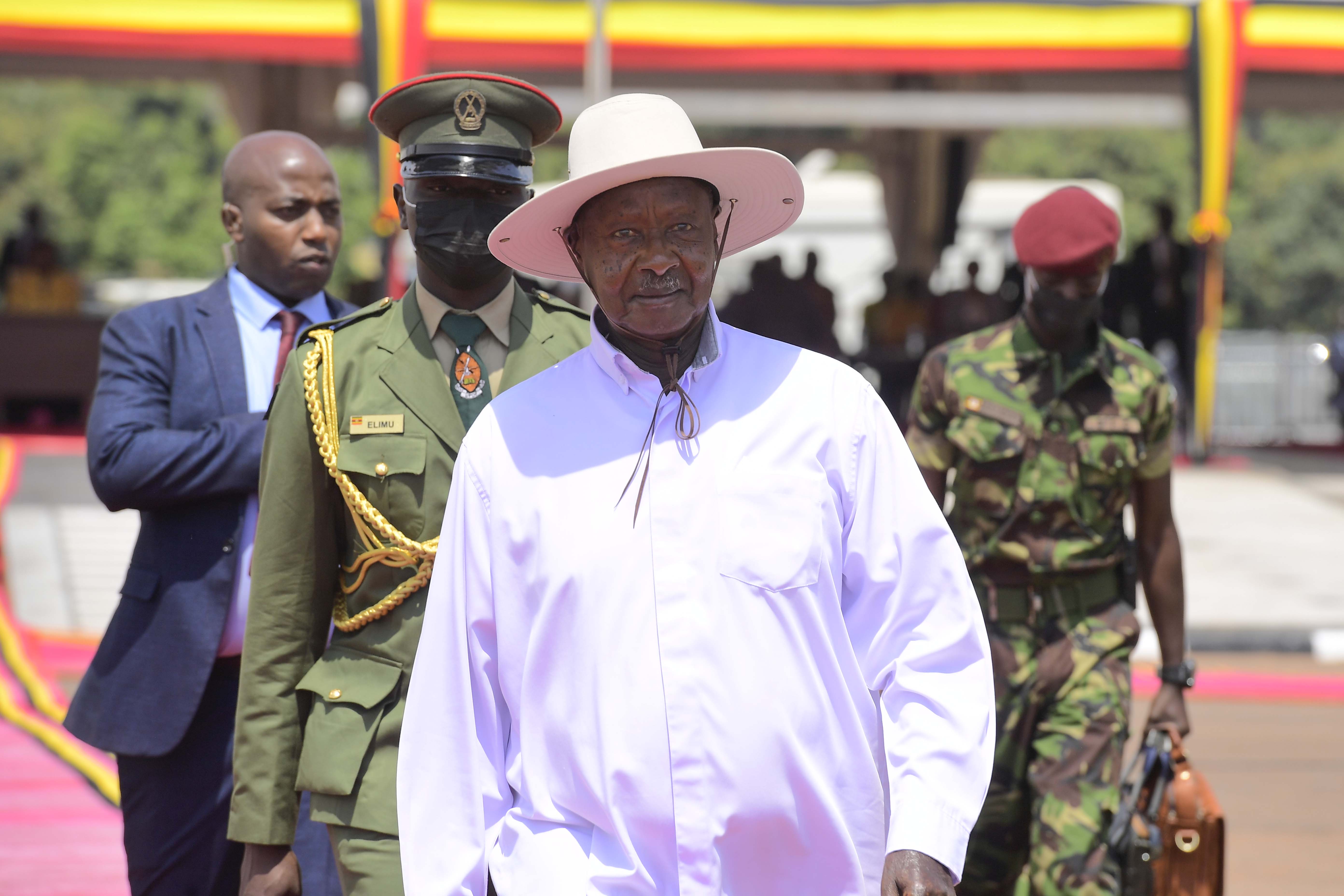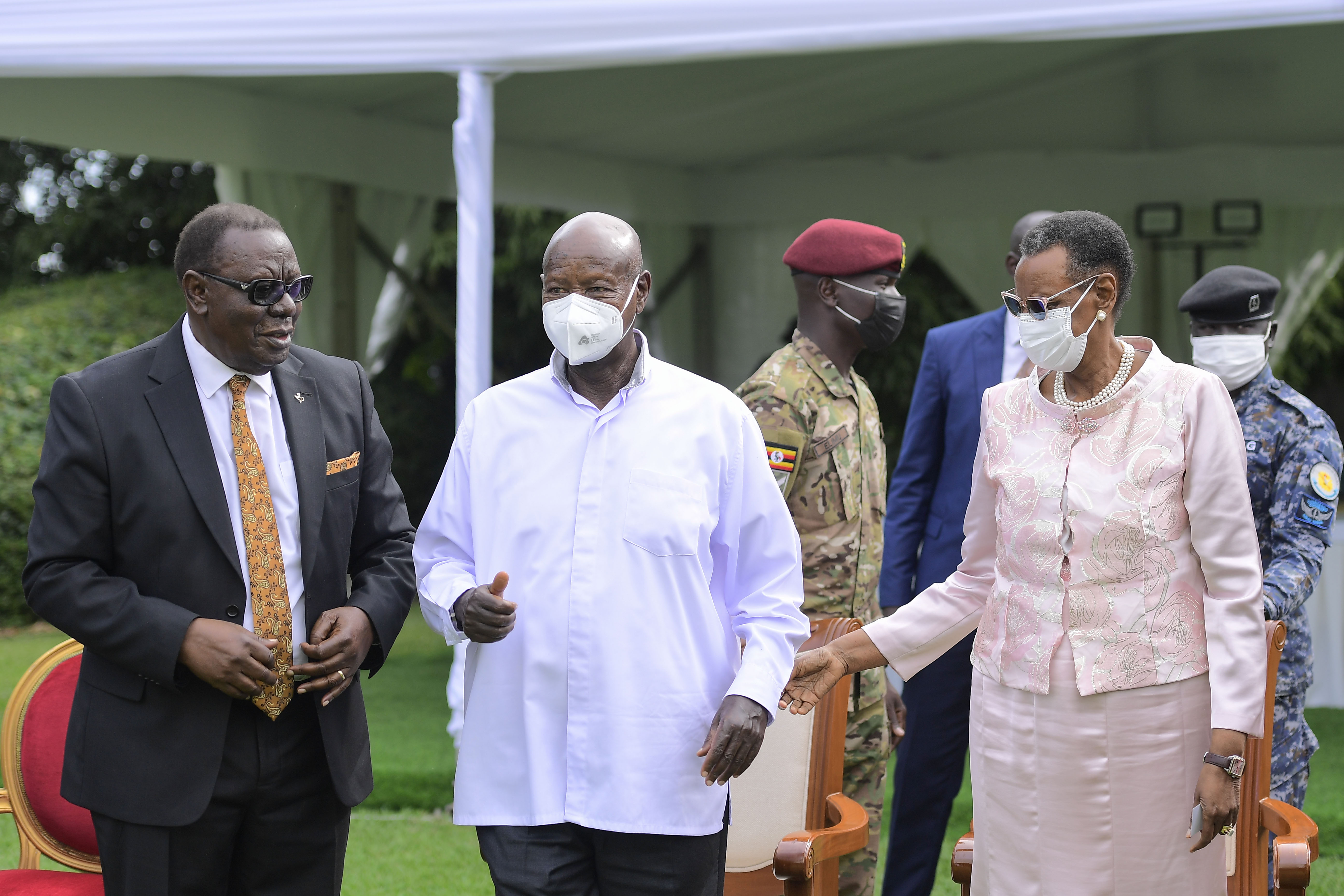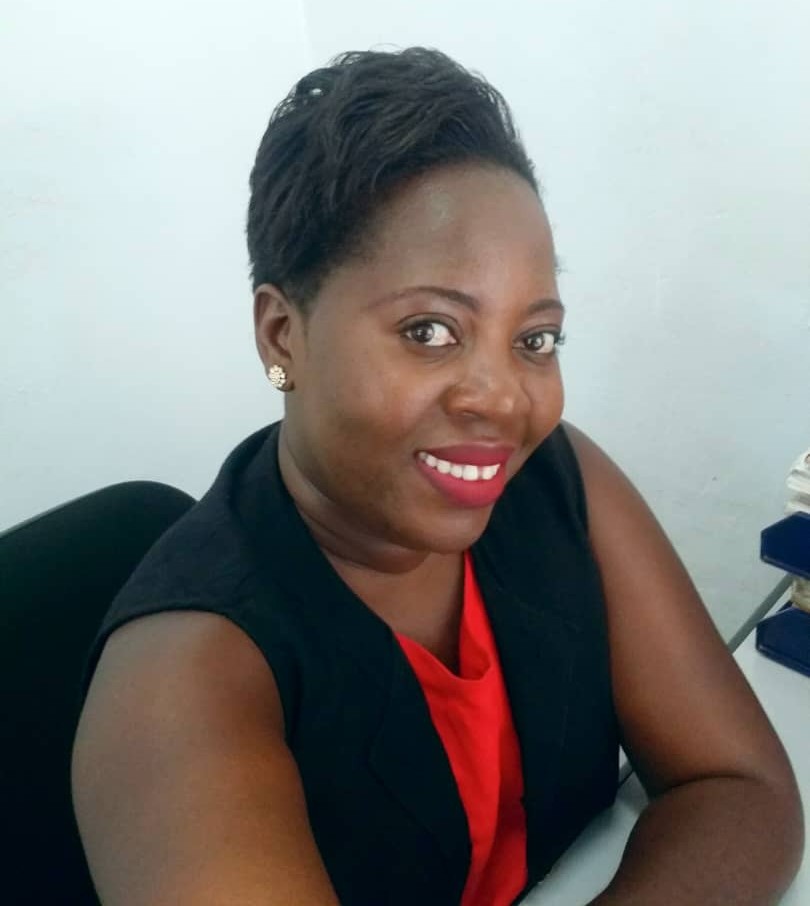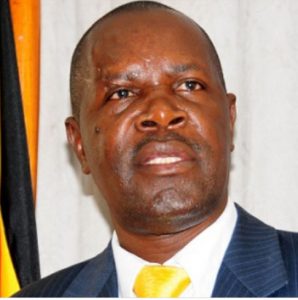PRESIDENT MUSEVENI LAUNCHES WEST NILE CAMPAIGN TRAIL WITH A CALL FOR UNITY, PEACE AND WEALTH CREATION
President Yoweri Kaguta Museveni, who is also the National Resistance Movement (NRM) Presidential candidate in the 2026 general elections, resumed his nationwide campaigns on Tuesday, October 7, 2025, with a grand entry into the West Nile sub-region, addressing thousands of supporters in Pakwach District.
The President urged the people of West Nile to vote for the NRM, which he said has preserved peace and unity in Uganda for decades, laying the foundation for the region’s transformation from a once volatile zone into a stable area.
“When the NRM came to power, many of you were in exile in Congo and South Sudan. I hear that many of you were born there, but when the NRM came, we reconciled, and you people came back immediately. So, you’re the best witnesses to talk about the strength of the NRM,” H.E Museveni told the cheering crowd.
The President contrasted Uganda’s stability with the instability in neighbouring South Sudan and the Democratic Republic of Congo, noting that Uganda’s peaceful environment has made it a refuge centre for people fleeing conflict in the region.
“But also, you’re neighbors to Congo and South Sudan, and you know what’s happening there. Uganda is now hosting very many refugees, and you know those refugees. So you’re the best witness,” he added.
The NRM Presidential candidate used the rally to reflect on his political journey, tracing the roots of the NRM’s ideology back to the 1960s. He explained that his involvement in politics began in 1960, long before the liberation struggle, at a time when Uganda’s politics was polarized along tribal and religious lines.
“When you’re supporting the NRM, you should know the reasons you’re supporting it for. The NRM has been involved for the last 65 years. I myself started in the 1960s, and the youths were in the old political parties, DP, UPC, and Kabaka Yekka. The problem was that those parties were based on sectarian grounds of tribes and religion,” President Museveni said.
“In 1971, we formed FRONASA, which became part of the liberation struggle. Since then, we have always supported what is right and opposed what is wrong,” the President added, emphasizing that the NRM’s foundation was built on national unity, not sectarianism, and that this ideological commitment has ensured peace and stability across Uganda.
President Museveni further outlined key achievements under the NRM government, dividing development into two categories — economic infrastructure and social infrastructure.
He cited major road works such as the Karuma–Pakwach–Nebbi–Arua–Koboko road, which he said is being repaired, and the expansion of electricity and telephone connectivity as examples of the economic infrastructure that has enabled development in the region.
On social infrastructure, President Museveni noted significant progress in education and health in Pakwach District. He said the district now has 64 government primary schools and 8 government secondary schools, though 20 of the 68 parishes still lack primary schools.
“When you support the NRM, you should know the reasons why. We shall ensure that every parish has a government primary school, and every sub-county has a secondary school,” President Museveni pledged.
The President contrasted current educational progress with the early 1960s, when secondary schools were few and concentrated in central and western Uganda.
“When I was in Senior One at Ntare School in 1961, there was no single secondary school in West Nile, Acholi, Lango, or Teso. Today, every district has schools — that is progress,” he said.
Turning to the health sector, the President noted that out of the 10 sub-counties in Pakwach, only one has a Health Centre IV. He acknowledged demands from local leaders for a district hospital and promised to consider the request within the national budget framework.
President Museveni cautioned the public against making unrealistic demands without considering the available resources.
“I was in Oyam district earlier today and they want to divide it into two districts. Then I said what do we do with the roads, and they said forget about the road, and we get the district. You have to be serious with your demands,” President Museveni said.
The President explained that while the government continues to expand infrastructure, it must balance national priorities.
Oil discovery and future development plans:
President Museveni also highlighted Uganda’s emerging oil sector as a new source of national wealth, noting that petroleum production is set to begin next year.
“The good thing is that God is always with the NRM. The British were here for over 60 years and failed to find oil. We discovered it, and next year we shall start pumping,” he said, assuring Ugandans that oil revenues would be used responsibly for national development.
“If you elect NRM, we shall not allow our oil money to import perfumes, wigs, whisky, and so on. The oil money will be used for major roads, electricity for science development, and some of the health units, like you’re saying,” he said.
A large part of President Museveni’s message focused on household wealth creation, which he said is central to the NRM’s economic transformation agenda.
Using a rhetorical question, the President explained the difference between infrastructure and wealth.
“If you work on the road from Karuma to Pakwach to Nebbi to Arua all the way to Koboko, and we have built these schools you have said here, the question is, do you sleep on the road at night? Or do you sleep in the school? Or the health center unless you’re sick? At night, you need to sleep in your own house. From the rally here, you’ll go back to your home (paco para) at night, the poverty you left there in the morning will be waiting for you and will welcome you back,” President Museveni said.
He urged the people of West Nile to use the Parish Development Model (PDM) funds effectively to fight household poverty, noting that the government sends Shs 100 million per parish per year to support income-generating projects.
President Museveni showcased success stories from beneficiaries across the country. He mentioned Gilbert Kermundo, who used the PDM funds to expand his farming enterprise, and Apio Vicky from Lira, who invested Shs 1 million to plant maize and later expanded into livestock farming.
“The message of the NRM is that you should not be diverted by development things. Seek first homestead income, and the rest will be added unto you,” he said.
The President announced plans to create new funds targeting specific groups such as religious and cultural leaders, unemployed university graduates, and fishermen.
“With football, you have players and spectators, but in wealth creation, I don’t want spectators. Everybody must be a player,” he said, drawing applause.
President Museveni also addressed concerns from fishing communities, explaining the government’s plans to reorganize and modernize the fisheries sector.
He showcased videos of his fishponds in Lango, demonstrating the potential of aquaculture as an alternative to wild fishing.
“From a fishpond of 20 by 50 meters, my people are earning Shs 100 million. The government can build such ponds for you so that you get out of the wetlands,” he said.
He noted that the government’s enforcement operations, including the deployment of soldiers on lakes, were intended to protect fish breeding grounds and stop the illegal fishing of immature fish.
“The soldiers had nothing to do with the lake, but we had to stop the destruction of the fish. I will meet cultural and religious leaders to agree on who should fish and how,” he added.
The President further proposed a special Fisheries Development Fund to support the industry’s modernization and reduce conflicts between enforcement units and local communities.
Addressing the Jonam land question:
A major issue raised during the rally was the Jonam land dispute east of the Nile River. The President announced plans to establish a commission of inquiry to investigate the historical and legal aspects of the conflict between the Jonam and Acholi communities.
“I will appoint a judicial-type commission with authority to tell us the history of that area and handle these issues,” President Museveni said.
The Jonam people, whose name means “river dwellers,” historically lived on both sides of the Albert Nile but were displaced in the 1960s due to war and tsetse fly infestation. A 1976 government directive compelled many to relocate to the eastern bank, sparking disputes with Acholi communities, who also claimed customary rights over the same land.
Earlier, Pakwach District LC5 Chairperson Robert Omito welcomed President Museveni, noting that it was his first visit to the district since 2015.
“Your Excellency, you last set foot in Pakwach on January 27, 2015. You later granted us district status in 2017. Though you have not been here physically, you have sent us many things, including PDM funds and development projects,” Omito said.
He thanked the President for supporting the district through the Parish Development Model, noting that Shs 14 billion had been injected into 48 SACCOs.
Omito also called for reforms in the operations of the Fisheries Protection Unit (FPU), saying its enforcement measures had disrupted livelihoods.
“We request that the FPU become a backup force rather than being permanently on the waters and harassing our people,” he said.
Mr. Jacan Omach, Deputy Chairman of the NRM Electoral Commission and a native of the area, thanked President Museveni for appointing him to the position and reaffirmed West Nile’s support for the NRM.
He, however, echoed calls for a district hospital and resolution of the Jonam land issue, assuring President Museveni of overwhelming support in the 2026 elections.
“We shall give you over 85 percent of the votes in West Nile,” Omach pledged.
The NRM Secretary General Rt. Hon. Richard Todwong reminded the gathering that Pakwach gave President Museveni 61 percent of the votes in 2021, expressing confidence that the percentage would rise in 2026.
“Let us unite behind the NRM flag bearers so that we consolidate the party’s strength,” Rt. Hon. Todwong said.
West Nile sub-region, which serves as Uganda’s gateway to both South Sudan and the Democratic Republic of Congo, comprises 13 districts and city — Arua, Adjumani, Koboko, Terego, Maracha, Moyo, Pakwach, Nebbi, Yumbe, Zombo, Obongi, Madi-Okollo, and Arua City.
The region has been a stronghold for the NRM in recent years, particularly after the implementation of government programs such as the PDM, road construction, and rural electrification.
During the rally, President Museveni handed over flags to NRM flag bearers contesting in the 2026 elections and welcomed new converts from other political parties who joined the NRM.
He encouraged them to uphold party discipline and continue mobilizing support for the NRM’s victory in the upcoming elections.
The ceremony was attended by ministers from West Nile, Members of Parliament, NRM Central Executive Committee members, party flag bearers, local leaders, as well as cultural and religious representatives.
Later in the evening, President Museveni held an interactive session with journalists from the Lango sub-region, where he briefed them on the progress of his campaign trail and responded to questions.
2025-10-07

